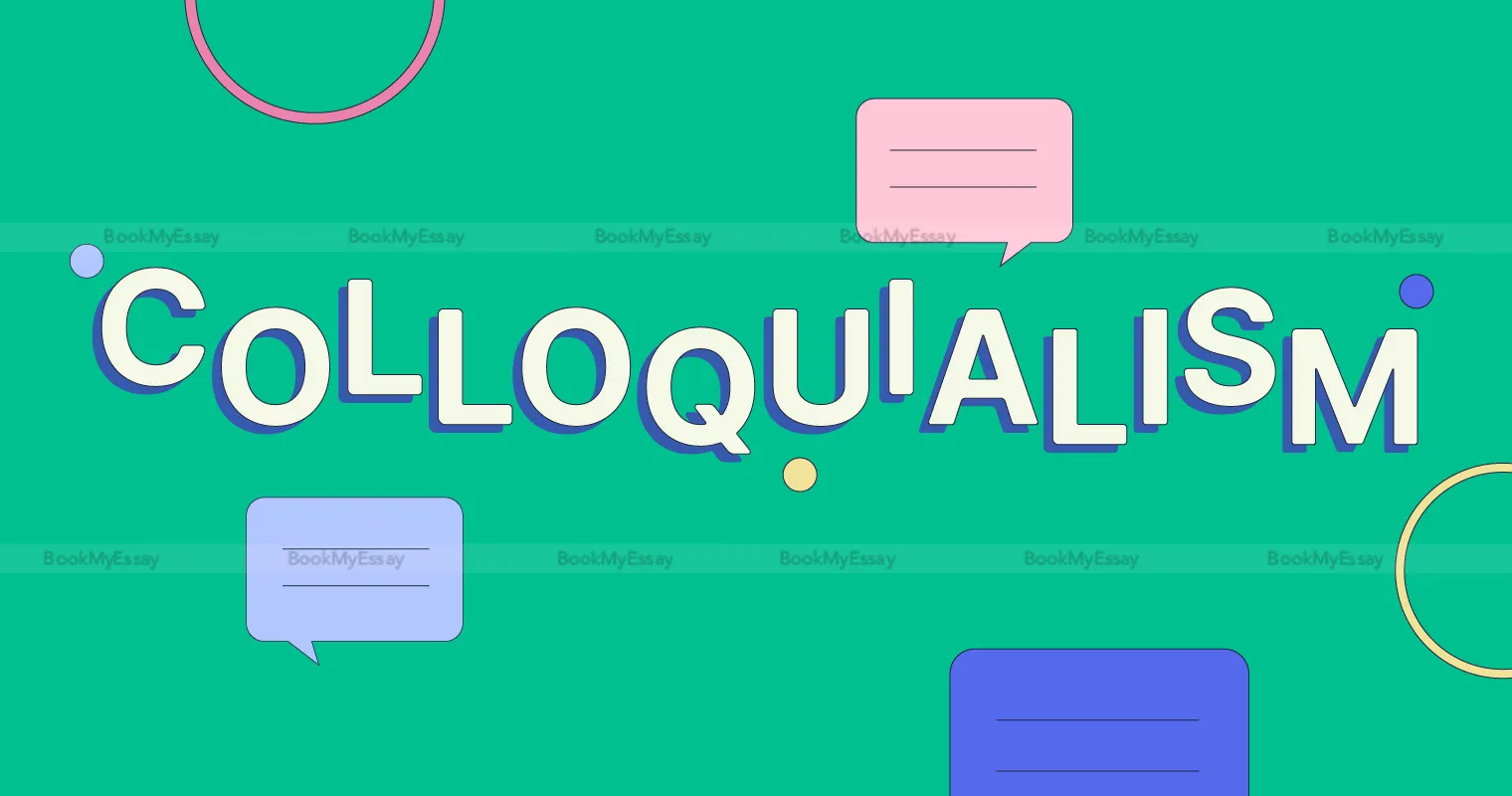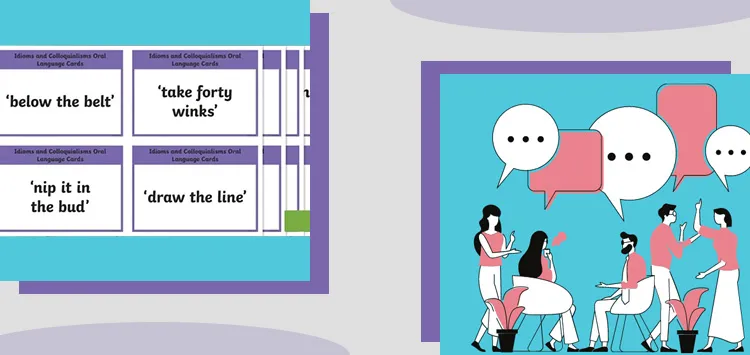Colloquialism
Colloquialisms are linguistic expressions that reflect informal, everyday language use within a specific community or region. These expressions, often characterized by their familiarity and conversational tone, add a unique flavor to communication. Colloquialisms encompass informal words, phrases, or even slang that might not be considered standard in formal contexts. What are colloquialisms, then? They serve as cultural markers, providing insight into the identity and shared experiences of a particular group. They bridge the gap between language and lived reality, fostering a sense of connection among speakers.
These informal expressions can vary widely, from regional dialects and idioms to pop culture references. Embracing colloquialisms in conversation helps create a relaxed and relatable atmosphere, but it's crucial to be mindful of context, as their usage might not always be suitable in formal or professional settings. In essence, colloquialisms enhance communication by infusing it with the richness and authenticity of everyday speech.

How Are Colloquialisms Different From Slang?
Colloquialisms and slang are often used interchangeably, but they have subtle distinctions. Colloquialisms refer to informal expressions or phrases used in everyday conversation within a specific region or community. They reflect the local culture and may not be universally understood. For instance, colloquialism examples include regional variations like "y'all" in the southern United States or "mate" in Australia. On the other hand, slang is a subset of colloquial language characterized by its transient nature and association with specific social groups. While colloquialisms provide a sense of familiarity and locality, slang is more dynamic, often emerging as a form of rebellion or cultural identification. Both contribute to the rich tapestry of language, showcasing the ever-evolving nature of communication.
Do Colloquialisms Get Accredit in Formal Writing?
Colloquialisms, informal expressions embedded in everyday speech, present a linguistic conundrum when it comes to formal writing. Defined as informal, conversational phrases and words, colloquialisms add a touch of familiarity to communication. However, their acceptance in formal writing remains a subject of debate. While some argue that colloquialisms undermine the gravitas of formal discourse, others contend that they can infuse vitality and relatability. Striking a balance is crucial; appropriateness depends on context and audience. Recognizing the definition of colloquialism as casual language, writers must judiciously assess their usage in formal settings. Ultimately, gaining accreditation in formal writing hinges on a writer's ability to navigate this linguistic terrain, employing colloquialisms purposefully and in harmony with the intended tone and audience expectations.
Do Colloquialisms Change Between Countries?
Colloquialisms, often reflective of cultural nuances and linguistic evolution, indeed vary between countries, influencing the need for diverse approaches in global communication. Exploring this linguistic diversity becomes crucial in the realm of Assignment Help Online, where effective communication is paramount. Idiomatic expressions, slang, and colloquial phrases can significantly differ across borders, posing challenges for both educators and students seeking international Assignment Help Online services. Understanding these variations enhances the quality of assistance provided, ensuring clarity and cultural relevance in educational support. Navigating the intricacies of colloquialisms within the context of online assignments requires a nuanced approach that acknowledges and respects linguistic differences, promoting effective cross-cultural communication in the digital academic landscape.
Can Colloquialisms Occasionally Lead To Misunderstandings Or Confusions?
In the realm of academic assignment help, the use of colloquialisms can occasionally pave the way for misunderstandings or confusions. While colloquial expressions may add a conversational tone to everyday communication, they often lack the precision required in academic writing. Professors and peers may interpret these informal phrases differently, hindering the clarity of the message. Academic assignments demand a level of formality and clarity to ensure that ideas are communicated accurately. Using colloquialisms might inadvertently introduce ambiguity or cultural nuances that distract from the intended meaning. Therefore, in the pursuit of effective communication and comprehension in academic assignments, it is advisable to adhere to a more formal language structure, minimizing the risk of misinterpretation and ensuring the conveyance of ideas is both precise and universally understood.
Do Colloquialisms Only Occur In Spoken Language Or Can They Also Be Found In Written Form?
Colloquialisms, typically associated with spoken language, are informal expressions that reflect regional or social dialects. Contrary to the formal nature of academic writing help, colloquialisms are generally discouraged in scholarly texts. However, there is a nuanced relationship between colloquial language and written communication. In certain contexts, authors strategically incorporate colloquialisms to convey familiarity or engage readers. While academic writing prioritizes clarity and precision, some disciplines, particularly in the humanities, may permit limited use of colloquial expressions to enhance rhetorical impact. Nevertheless, the prevalence of colloquialisms in academic writing remains minimal, as the emphasis is on maintaining an objective and professional tone. Striking a balance between clarity and formality is crucial in navigating the complex interplay between colloquialisms and written discourse within academic settings.
Is It Possible For Me To Quickly Obtain A Free Citation Generator Using BookMyEssay?
Certainly! BookMyEssay, a renowned Assignment Help Service, offers a swift and free citation generator for students seeking seamless academic support. With BookMyEssay's user-friendly platform, accessing a citation generator is both quick and efficient. This tool ensures precision in citing sources, alleviating the burden of manual citation formatting. The Assignment Help Service not only prioritizes academic excellence but also acknowledges the importance of accurate citations in scholarly work. By providing a free citation generator, BookMyEssay empowers students to focus on the substance of their assignments while ensuring adherence to citation standards. This convenient resource reflects the platform's commitment to enhancing the overall academic experience, making it a valuable ally for students navigating the intricacies of scholarly writing.







 3 Bellbridge Dr, Hoppers Crossing, Melbourne VIC 3029
3 Bellbridge Dr, Hoppers Crossing, Melbourne VIC 3029




